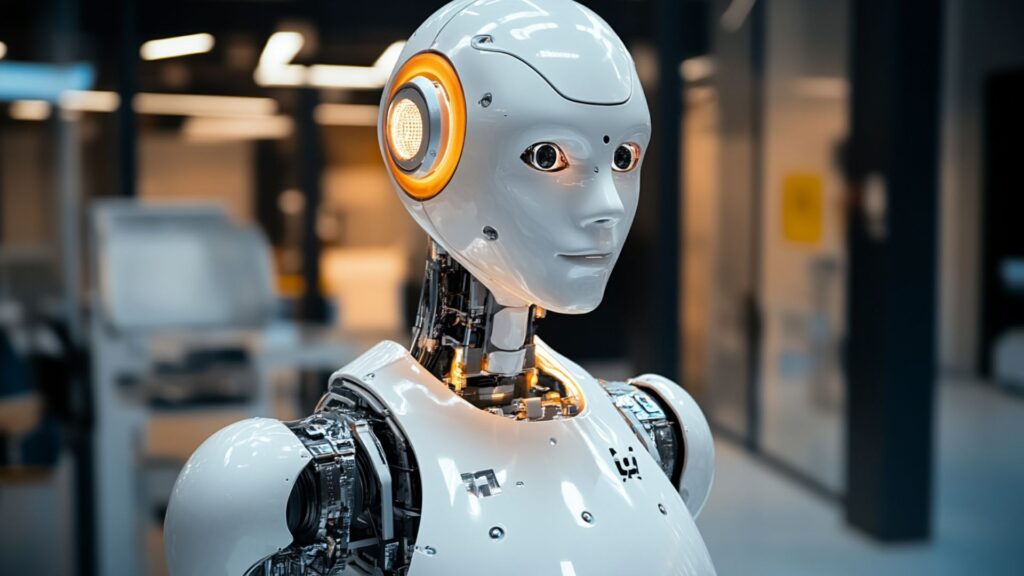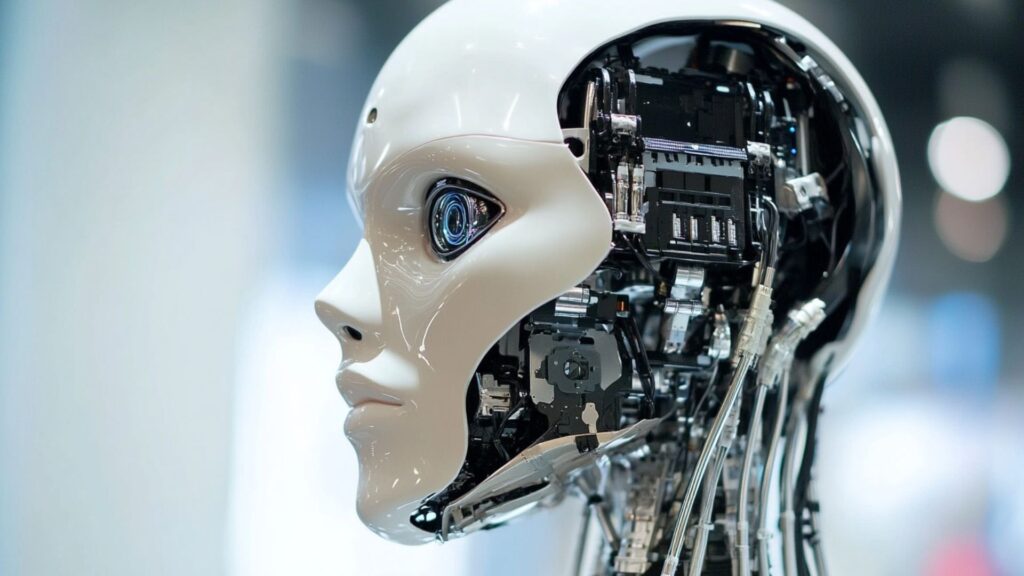The Most Promising AI Startups of 2025

In 2025, AI has become one of the most transformative innovations of our era. Artificial intelligence is proving to be a powerful tool for achieving goals across numerous sectors. It's no longer confined to research laboratories. AI is driving a revolution across industries, offering significant advantages. Examining the most promising AI startups reveals their core technologies and innovations. AI is making breakthroughs across healthcare, finance, education, and other fields. These startups are at the forefront of this evolution and continuous improvement. Artificial intelligence is changing how people live, what technologies they use, and how they work. Even everyday technology interactions are evolving.
Several powerful factors drive this growth. These forces help expand the concept of scalable automation solutions. They include venture capital investments and corporate funding. Together, they're fueling significant AI development. Society is being transformed through automation, open-source models, and accessible APIs. Examining these startups illuminates the rapidly evolving AI landscape. The most promising AI startups demonstrate innovation, scalability, strong funding, and practical applications. These companies combine breakthrough ideas with the ability to scale effectively. Strong funding enables real-world impact beyond theoretical promises. Understanding this ecosystem provides insights into AI's practical applications for both investors and entrepreneurs.
Emerging Trends Shaping AI Startups in 2025
Emerging trends are shaping the direction of new startups. In 2025, a major transformation is underway in the AI field. Four main trends are becoming the driving forces for change. They're helping industries focus their strategic investments. These forces are accelerating product development and reshaping business approaches. Here are their key characteristics and their impact on startup strategies and funding priorities:
- Generative AI. New AI startups are powered by generative artificial intelligence. It's not just about generating text or images anymore. This AI technology is becoming fundamental to business operations. Startups are building platforms that automate content creation. Teams can generate code, accelerate drug discovery, and deliver personalized marketing. In 2025, generative AI has become both a strategic imperative and a powerful tool.
- Multimodal AI. Multimodal AI systems can process text, audio, images, and video simultaneously. In 2025, startups are deploying these models for customer experience platforms. Diagnostics and educational technologies are expanding. These solutions enable improved interaction and more accurate decision-making.
- Autonomous Systems. Autonomous systems extend beyond transportation. Startups are applying autonomy in agriculture, logistics, and industrial robotics. AI-powered systems can operate with minimal human intervention. These systems maximize efficiency and minimize errors.
- AI-Powered Analytics. Top AI startups in 2025 enable organizations to predict outcomes through advanced analytics. This represents a shift from static dashboards to predictive intelligence. Companies can make strategic decisions while prioritizing privacy-focused design. The main benefits are enhanced real-time processing with greater transparency and control.
Key investment sectors include healthcare, fintech, enterprise solutions, and robotics. In healthcare, AI is accelerating drug discovery and diagnostics. In fintech, AI enhances fraud detection and compliance. Enterprise automation benefits from improved security and robust SaaS solutions. AI startups in the USA are advancing robotics. These systems streamline logistics and manufacturing while reducing errors.
Top AI Startups to Watch in 2025
Several standout startups deserve close attention. The 2025 landscape offers compelling opportunities to track their progress. Top 10 AI startups are built on innovation. They're also supported by strong funding and market traction. Companies across industries offer unique value propositions. They demonstrate how technology and market dynamics intersect. Each company's product illustrates the connection between technology and business goals. This ranking highlights startups with substantial investor backing. Here are their key characteristics and brief descriptions:
- Anthropic (USA). The company is known for developing Claude, an AI language model that emphasizes safety and reliability over raw performance. Target market: Enterprises requiring safe, reliable AI automation without unpredictable behaviors or harmful outputs. Key strengths: Proven reliability and world-class technical team with deep expertise in AI alignment. The startup has secured major partnerships with tech giants and continues expanding into regulated industries where trust is paramount.
- Mistral AI (France). Develops high-performance LLMs that compete with ChatGPT while offering European alternatives to U.S.-dominated AI platforms. Target market: Developers and government agencies building custom AI solutions with data sovereignty requirements and regulatory compliance needs. Key differentiators: Open-source approach, speed, and ease of customization for specific use cases. The company positions itself as Europe's answer to OpenAI, attracting significant investment from European governments and enterprises.
- Humane (USA). This technology creates wearable devices that enable screen-free AI interaction through voice and projection technology, minimizing digital distractions. Target market: Mass consumer market seeking to reduce screen time while staying connected throughout their daily activities. Key differentiator: Ergonomic, screen-free design for everyday use that feels natural and unobtrusive. The device represents a bold reimagining of personal computing, moving away from smartphones toward ambient, voice-first interaction paradigms.
- Hippocratic AI (USA). Develops medical voice and text AI models specifically designed for healthcare environments and clinical workflows. Target market: Clinics and hospitals seeking to reduce administrative burden on medical staff while maintaining high care standards. Key differentiator: Strict adherence to medical compliance standards, including HIPAA and clinical accuracy validation. Main strengths: Industry specialization and clinical accuracy verified through rigorous testing protocols. The platform has demonstrated significant time savings for healthcare providers while improving patient communication quality.
- Figure AI (USA). From the top 10 AI startups, this one develops general-purpose humanoid robots capable of performing diverse physical tasks in unstructured environments without extensive programming. Target market: Manufacturing and logistics sectors facing labor shortages and seeking automation solutions that work alongside human employees. Key differentiator: Integration of advanced ML with cutting-edge robotics engineering for practical applications. Main advantages: Breakthrough robotics with practical applications demonstrated in real warehouse environments. The company's robots learn through demonstration, adapting to new tasks without requiring complete reprogramming from engineers.
- Stability AI (UK). Develops tools for generating images, video, and audio that rival proprietary alternatives from larger competitors. Target market: Marketers and designers needing cost-effective creative tools with customization options and full ownership rights. Key differentiator: Open-source approach with scalable infrastructure that reduces vendor lock-in and licensing fees. Key strengths: Vibrant creative ecosystem and broad accessibility for users of all skill levels. The platform has democratized AI-generated content, enabling independent creators to compete with well-funded production studios.
- Hugging Face (USA/Global). Platform for sharing, training, and deploying AI models with collaborative features that accelerate development cycles. Target market: Developers and researchers building AI applications without massive infrastructure investments or specialized expertise. Key differentiator: World's largest open-source AI community with thousands of pre-trained models available for immediate use. The platform functions as the GitHub of AI, fostering collaboration and reducing barriers to entry for AI development across academia and industry.
- Runway (USA). The platform offers AI-powered tools for video generation and visual effects that democratize filmmaking and content creation. Target market: Film and advertising industries seeking to reduce production costs and timelines while maintaining creative control. Key differentiator: Professional-grade capabilities with an intuitive interface that requires minimal training or technical expertise. The company has partnered with major studios and agencies, proving that AI can enhance rather than replace human creativity in visual storytelling.
- Perplexity AI (USA). The system provides top AI startups 2025 that delivers answers with verified sources and citations rather than generic responses. Target market: General consumers, education, and business analytics seeking accurate information quickly without sifting through multiple sources. Key differentiator: Real-time answers with source citations and high accuracy, which build user trust and credibility. The platform challenges traditional search engines by providing direct answers while maintaining transparency about information sources and confidence levels.
- Cohere (Canada). Develops enterprise-focused language models designed for business workflows and data security requirements in regulated environments. Target market: Financial services, logistics, and e-commerce companies with complex integration needs and strict compliance requirements. Key differentiators: Seamless integration with internal systems, business focus, and productivity optimization that delivers measurable ROI. The company differentiates itself by offering private deployment options, allowing enterprises to run AI models on their own infrastructure while maintaining complete data control.
Innovative Products and Solutions
Understanding the best AI startups of 2025 offers valuable insights. These key startups stand out not just for their ideas. They're distinguished by the transformative innovations they deliver. Their solutions help companies reduce costs and achieve maximum efficiency. These startups are creating new markets and competitive advantages across industries. Examining how these innovations address industry-specific challenges is instructive.
Anthropic exemplifies secure AI interaction. Claude has gained significant traction in the financial sector. Its adoption is driven by accuracy, transparency, and regulatory compliance.
Examining the largest AI startups reveals customization possibilities. Mistral AI stands out for its open-source approach. This approach enables powerful, customizable language models. It reduces dependency on large closed platforms.
Another notable example is the Humane AI Pin. It enables AI interaction through voice and gestures. In medicine, Hippocratic AI plays a significant role through voice assistants. It supports both clinicians and patients throughout the care process. This technology reduces staff workload while improving communication.
Funding and Growth Trajectory
Promising AI startups demonstrate strong funding momentum and impressive growth trajectories. Analyzing funding rounds reveals investor confidence. Investors favor companies with innovative solutions and clear paths to scale. Several startups are defining entirely new markets.
Anthropic is scaling through strategic partnerships. The company has raised over $7 billion in investment. Partnerships with Google and Amazon demonstrate strong investor confidence. The company is expanding its enterprise client base, driving rapid growth.
Mistral AI exemplifies growth through an open ecosystem. The startup raised $600 million in just one year. European companies are implementing this startup's open models. It's among hottest AI startups 2025, offering European companies digital sovereignty. Its success stems from rapid open-source adoption.
Technology Differentiators Driving Success

Understanding technical differentiators is crucial when evaluating AI startups. Success often hinges on proprietary AI technologies. This includes proprietary algorithms or unique platform capabilities. Understanding competitive advantages explains their market positioning.
Anthropic's key technical advantage lies in its model training methodology. The company trains models using Constitutional AI, embedding ethical guidelines. This approach makes Claude more stable and safer than competing models. Key benefits include enhanced response control and regulatory compliance. This creates a significant barrier to entry: developing comparable ethical frameworks.
Many startups now specialize in finance and AI consulting. Each offers distinct competitive advantages. For example, Mistral AI develops high-performance, open-weight LLMs. These models are faster, more cost-effective, and more efficient than closed alternatives. Key advantages: flexibility and customization. Barrier to entry: deep engineering expertise.
Figure AI stands out by creating humanoid robots. These robots integrate advanced computer vision and sensorimotor processing. These aren't simple robots—they're fully autonomous systems. Key advantages: versatility across physical tasks with minimal error rates. Barrier to entry: massive capital requirements and multidisciplinary expertise.
Research and Development Capabilities
Evaluating the latest AI startups' R&D capabilities is essential. Leading startups maintain active research programs and robust patent portfolios. Many partner with academic institutions. R&D investment drives product innovation. It also establishes lasting competitive advantages.
Mistral AI exemplifies strong R&D in generative AI. The startup is known for its rigorous model architecture and open-source commitment. Its R&D strategy leverages partnerships with French and EU research labs. Key advantage: independence from U.S. tech giants.
Hugging Face operates one of the most prominent AI R&D hubs. The company hosts the world's largest repository of open AI models. Collaborating with Stanford and Meta AI, it advances novel architectures. Its open-standards focus has created a vibrant, collaborative infrastructure.
Inflection AI focuses on personalized AI assistants. The company maintains substantial R&D investment and proprietary supercomputing infrastructure. Research emphasizes adaptive, emotionally intelligent systems. Key differentiator: integration of linguistic sophistication with UX innovation.
Industry Applications and Market Fit
New AI startups are driving success and productivity across sectors. Assessing industry-specific applications reveals product-market fit. AI solutions are being deployed across diverse industries. Understanding product-market fit is critical.
AI diagnostics are transforming healthcare. Medical voice assistants and automated training are being deployed. The need for rapid, accurate clinical decisions drives market demand. This reduces clinician workload while minimizing diagnostic errors.
Enterprise automation and workflow optimization promising AI startups another key application. Key use cases include intelligent document processing and conversational AI. These solutions enable better decision-making and enhanced customer support. Organizations report significant cost savings and efficiency gains.
AI-powered analytics and risk management are critical in financial services. Applications include market forecasting, algorithmic trading, and risk assessment. Strong market demand reflects the need for accurate, real-time decision support.
Warehouse robotics aims to reduce physical labor demands. Applications include autonomous fulfillment and manufacturing automation. Market drivers: labor shortages and rising automation requirements.
Challenges and Risks for AI Startups in 2025

AI startups across finance, robotics, and consulting are gaining momentum. These startups increasingly shape daily life. They optimize operations across industries. However, they face significant challenges requiring strategic responses. Understanding and mitigating these risks is crucial in 2025.
- Regulatory Compliance. Navigating evolving AI regulations presents challenges. Risks: data privacy violations and deployment restrictions. Mitigation: employ AI-specialized legal counsel and engage proactively with regulators.
- Big Tech Competition. The latest AI startups face formidable competition from established tech giants. Risk: resource-rich incumbents may dominate markets. Mitigation: focus on niche applications, vertical specialization, or open-source models.
- Talent Acquisition. Severe shortage of ML and robotics expertise. Mitigation: Establish dedicated R&D centers and forge university partnerships. Internal training programs can help develop talent pipelines.
- AI Ethics. Ethical concerns represent a critical challenge. Risks include harmful or biased outputs that can cause reputational damage and legal liability. Mitigation: embed ethical guidelines throughout development and implement rigorous testing.
- Data Privacy. Risk of unauthorized data exposure. Consequences: regulatory penalties and erosion of customer trust. Mitigation: implement encryption, anonymization, and on-premise deployment options.
- Market Adoption. The largest AI startups may have a problem with data confidentiality leakage. Mitigation: offer pilot programs, freemium models, and clear ROI demonstrations. Build familiarity and confidence through proven results.
Future Outlook for AI Startups
Examining today's AI startup lists offers insights into future trends. Over the next 3-5 years, AI will continue reshaping the economy. It's creating new markets and transforming how industries operate. Key trends include advancing generative and multimodal AI. Equally important: autonomous systems and healthcare AI.
Generative and multimodal AI startups will enhance content creation capabilities. Driving this trend: surging demand for sophisticated creative tools and solutions.
Autonomous systems and robotics are advancing through the development of humanoids. This is accelerating the automation of physical tasks.
Healthcare AI is undergoing revolutionary advances. Diagnostics and personalized medicine are integrating into clinical workflows.
FAQ
The top AI startups 2025 include companies building generative AI, robotics, multimodal systems, and enterprise automation tools. These most promising ai startups stand out for innovation, funding, scalability, and real-world adoption across healthcare, finance, and enterprise sectors.
The top 10 AI startups are evaluated by funding rounds, breakthrough technology, market traction, and industry impact. They typically offer defensible IP, strong leadership teams, and products ready for enterprise deployment.
The biggest ai startups—Anthropic, Mistral AI, Hugging Face, Figure AI, and Runway—are scaling globally with billions in funding and deep infrastructure. These largest ai startups influence AI research, open-source ecosystems, and enterprise transformation.
AI startups in USA lead due to access to venture capital, advanced infrastructure, top universities, and partnerships with cloud providers. Many of the hottest ai startups 2025—Anthropic, Perplexity, Runway, Figure AI—are US-based and shape emerging AI standards.


